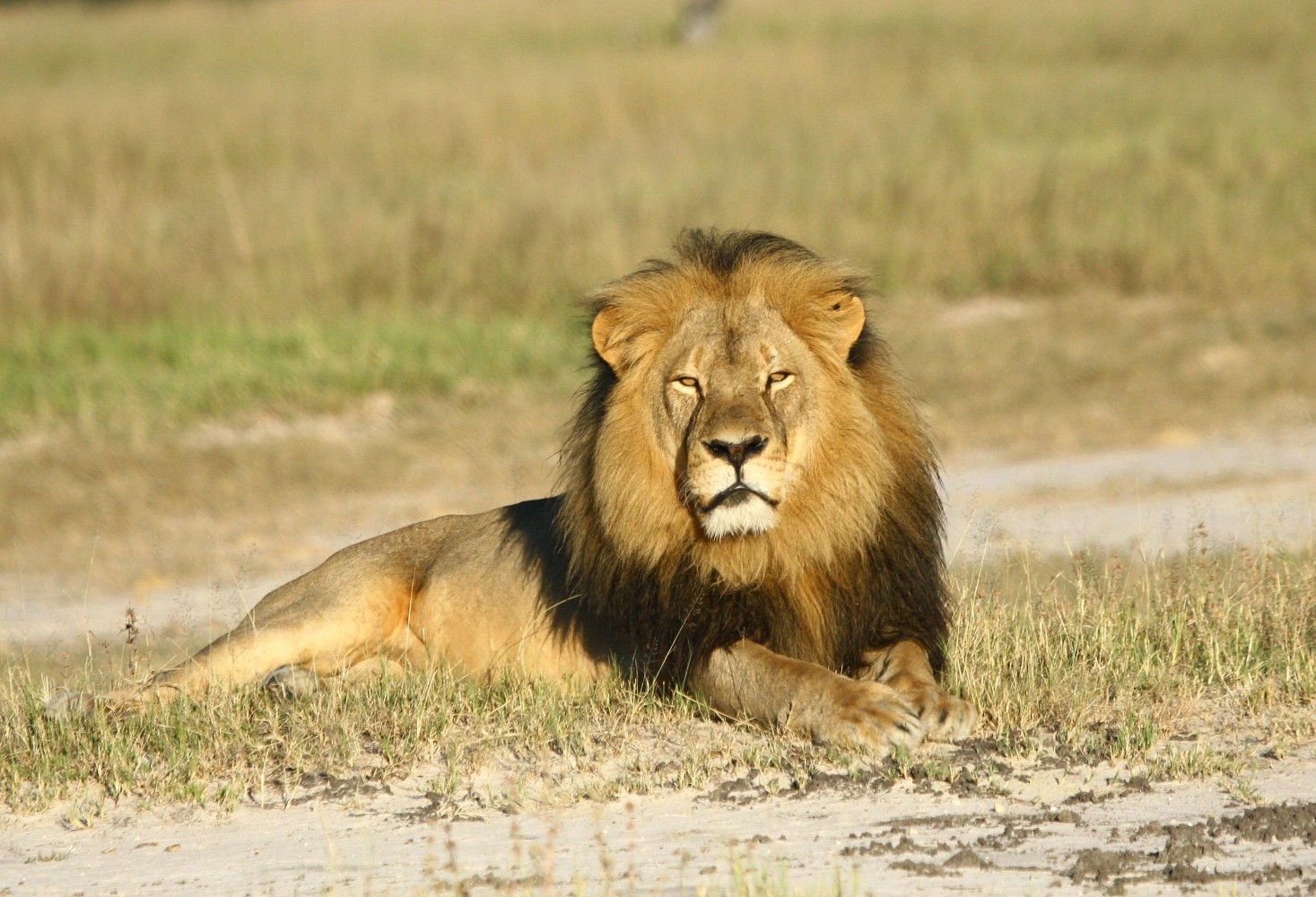By Jada F. Smith, The New York Times, June 13, 2016
 |
| Cecil, the lion, was killed by Minnesota dentist and trophy hunter Walter Palmer last year. |
WASHINGTON — Advocates of trophy hunting, and even the United States government, have long justified the killing of protected wildlife in Africa by saying that taxes and fees from the hunts help pay for larger conservation efforts.
But a new report by the Democratic staff of the House Natural Resources Committee challenges those claims, finding little evidence that the money is being used to help threatened species, mostly because of rampant corruption in some countries and poorly managed wildlife programs. It concludes that trophy hunting may be contributing to the extinction of certain animals.
It has been almost a year since an American hunter killed a beloved lion named Cecil in Zimbabwe, setting off an international debate over sport hunting and widespread anger on the internet. Since then, the Obama administration has placed lions in Africa under the protection of the Endangered Species Act, France has banned the import of lion trophies, and more than 40 airlines have said they will no longer transport hunting trophies.
The 25-page House report, called “Missing the Mark,” says that while poaching remains the gravest threat to animals like lions, rhinoceroses and leopards, “trophy hunting also removes a significant number of animals from these rapidly declining populations.”
“As the tragic death of Cecil the lion showed us,” the report says, “trophy hunters do not always play by the rules, and the trophy hunting industry needs to be regulated and held accountable for there to be any hope of a consistent conservation benefit.”
In theory, elaborate big-game hunts — which can cost tens of thousands of dollars, including trophy fees, professional guide payments, transportation and lodging — could help poor countries maintain robust conservation programs and give aid to residents. In the past, the money has been used to repair degraded environments, and the revenue from trophy hunting has been seen as deterring local residents from killing animals because they consider them a nuisance or a danger.
However, the report says, “In assessing the flow of trophy hunting revenue to conservation efforts, we found many troubling examples of funds’ either being diverted from their purpose or not being dedicated to conservation in the first place.”
The Endangered Species Act says hunted trophies can be brought to the United States only if they do not contribute to the extinction of a species. That standard is not always met, the report says, and it recommends that the Fish and Wildlife Service improve its permitting process so that only trophies that actually enhance the survival of species are allowed into the country.
The service has the authority to require an import permit for any species listed as threatened or endangered. In 2014, the agency suspended imports of elephant trophies from Tanzania and Zimbabwe because of “catastrophic population declines.” But, according to the study, it has been reluctant to use its authority to restrict other trophy imports that do not meet the standards on protecting species.
The agency has also used special rules to exempt from permitting requirements many imports of animals listed under the Endangered Species Act, the report says. For the species covered in the House report, the Fish and Wildlife Service required only one import permit from 2010 to 2014, though more than 2,700 trophies eligible for permitting were imported during that time. For the 1,469 leopard trophies that could have required an import permit, the agency required none.
Because Americans bring home more trophies of protected species than hunters from any other country, some conservationists believe that the United States government has the responsibility and the leverage to force a change. The urgency for such change, however, can be largely credited to Cecil the lion.
“Before Cecil, there was a certain complacency surrounding what to do about the lion, almost an indifference,” said Craig Packer, a lion expert who ran the Serengeti Lion Project in Tanzania for 35 years and has been critical of hunting practices in that country.
“After Cecil, it became clear that the public was much more skeptical of sport hunting,” he said. “It shows the power of public opinion.”
No comments:
Post a Comment